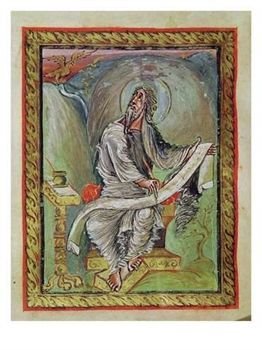There has been a lot of talk recently about Pope Benedict XVI and the universal indult. Now, I've heard talk of some sort of juridical structure specifically for the priests who elect to say the Roman Mass, so they will be free from reprisals for doing so. I have never experienced the Old Roman Rite, but I feel a deep spiritual desire to be united with centuries of Christian worship. For this reason I look forward to the possibility that the traditional liturgy will become more available. I have some reservations, however. I worry that we are heading toward two distinct institutions: the "high" (Latin, Old Rite) Catholic Church and the "low" (vernacular, Novus Ordo) Catholic Church. We can see in the Anglican Church this exact phenomenon. This danger seems to be increased by the prospects of a juridical structure outside of regular diocesan structure. Are we headed to a virtual split in the Latin Rite Church akin to the split that exists today between the Latin and Byzantine Rites? If the "high" Catholics leave the "low" Catholic parishes and flee to the Old Rite, what will become of the rank-and-file Churchgoer? Who will moderate the more radical of the liberals in our parishes?
I'm afraid ever since great variations arose between parishes this phenomenon has been growing. Already the idea of the parish as a geographical entity is fading in favor of it as a purely elective community. This mirrors the general replacement of communities with cliques throughout society, and the concurrent increase in mobility, the demise of the extended family, and all that fun stuff. We have to ask ourselves, is allowing the separation of the conservatives from the mainstream (liberal) Catholics another example of the Church caving to the culture of extreme individualism?
Rather, I hope that we could have a situation where one of a parish's many Sunday Masses would be the old Rite. Or, better yet, if there is a true acknowledgement that something great has been lost, we can slowly, organically reintroduce those components into the new canon. It was over intellectualization, and a lack of respect for the power of culture and history, that convinced us that it was okay to "design" our liturgies in the first place. Is it not the case that the liturgy must flow from the action of worship itself, that only when the people are living as Christians will a truly Christian liturgy emerge? If our parishes were full of devote Christians, our liturgies would become a true expression of that devotion. We might be surprised how, if a renewal of faith in the hearts of the Catholic population occurred, the new canon and old might merge, that the distinction between the two would become purely academic, because regardless of which book the priest was reading from, the people would be united in adoration, in prayer, and in Sacrament with the Church past, present, and future.
As people we necessarily live in culture. The inner spirit of the culture is expressed in every action of the people: philosophy, theology, prayer, art, music, politics, family, etc. We must believe in our hearts, to our very core, to the point were our every action is an expression of our membership in the Church of Christ. This expression cannot be translated into intellectual formulations, into mere words; to do this is to raise the intellectual aspect of culture above the rest. It is this error that has led us to believe that as long as the books on the shelves still profess the doctrinal formulations of the Church that we are still Catholic-- this is a mistake. I pray that we are not making the same mistake in advocating the re-introduction of the Old Rite. Let us remember, the vast majority of us have never seen it.
All in all, though, I have to support the return of the Old Rite. But, I fear my reason for this support is persistent hopelessness. Let us pray for Hope.
Friday, February 23, 2007
Subscribe to:
Post Comments (Atom)

No comments:
Post a Comment